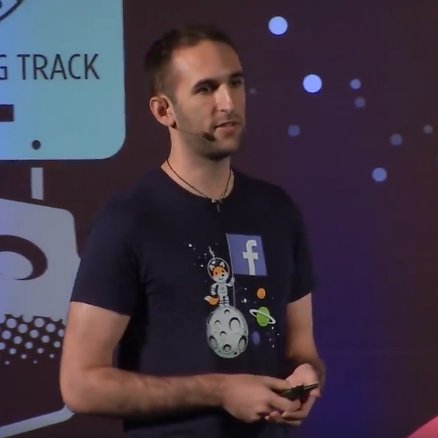Happy new year everyone! Today we are announcing the latest release of React Native, 0.67.0, along with some updates on the release process that we have been working on in the past few months.
Toward Hermes being the Default
Since we announced Hermes in 2019, it has been increasingly gaining adoption in the community. The team at Expo, who maintain a popular meta-framework for React Native apps, recently announced experimental support for Hermes after being one of the most requested features of Expo. The team at Realm, a popular mobile database, also recently shipped its alpha support for Hermes. In this post, we want to highlight some of the most exciting progress we've made over the past two years to push Hermes towards being the best JavaScript engine for React Native. Looking forward, we are confident that with these improvements and more to come, we can make Hermes the default JavaScript engine for React Native across all platforms.
Announcing React Native 0.66
Today we’re releasing React Native v0.66 for Android 12 and iOS 15 support alongside fixes and general updates.
Highlights
Preparing Your App for iOS 15 and Android 12
Hello everyone!
With new mobile OS versions releasing late this year, we recommend preparing your React Native apps beforehand to avoid regressions when the releases become generally available.
React Native Is Hiring Managers, To Expand Beyond Mobile
We recently shared React Native’s Many Platform Vision for how expanding React to other platforms improves the framework for everyone else. We’ve been making significant progress on this vision over the last couple years by partnering with Microsoft on React Native for Windows and macOS, and Oculus on React Native in VR.
As part of our plans beginning earlier this year, we are growing our focus on these platforms and growing our teams to help us achieve our vision. In order to support our new teammates, and many more to come, we are hiring two Engineering Managers: one to help support React Native for Desktop, and one to support React Native for VR.
React Native's Many Platform Vision
React Native has been very successful at raising the bar for mobile development, both at Facebook and elsewhere in the industry. As we interact with computers in new ways and as new devices are invented, we want React Native to be there for everyone. Although React Native was originally created to build mobile apps, we believe that focusing on many platforms and building to each platform’s strengths and constraints has a symbiotic effect. We have seen huge benefits when we extended this technology to desktop and virtual reality, and we're excited to share what this means for the future of React Native.
React Native in H2 2021
Over the past year so much has changed in our world, React Native being no exception. We've welcomed new members to our team (whom we are excited to eventually meet in person!), our projects have matured and new opportunities have arisen. We're excited to share all this with you in this post and others to come!
At Facebook, our team works in half-year cycles. Each half we review our strategy, set plans, and share them internally. Today, we want to share our H2 plans with you, our community.
H2 2021 is an exciting half for React Native. Our areas of focus include nurturing the community, beginning to roll out the new architecture to open source, and pushing the technology forward.
Announcing React Native 0.65
Today we’re releasing React Native version 0.65 with a new version of Hermes, improvements to accessibility, package upgrades, and more.
What's new in Hermes 0.8?
Hermes, Facebook’s open source JavaScript VM optimized for React Native, has been upgraded to version 0.8.1. Some of the stand-out features in this release are:
- A new concurrent garbage collector titled “Hades” which delivers up to 30 times shorter pause times on 64 bit devices. At Facebook, we saw this improve some CPU-intensive workloads by 20%-50%. You can learn more about Hades here.
- ECMAScript Internationalization API (ECMA-402, or
Intl) is now built into Hermes on Android and enabled by default, with only 57-62K per API size overhead (compared to JSC's 6MiB). With this change, Hermes users no longer require locale polyfills. A big thank you to @mganandraj and other partners at Microsoft for driving the implementation to make this happen! - Hermes on iOS now supports Apple M1 Macs and Mac Catalyst!
- Memory improvements including SMI (Small Integers) and pointer compression that shrank JS heap by 30%.
- Changes to
Function.prototype.toStringthat fixed a performance drop due to improper feature detection and supports the source code injecting use case.
You can find the full Hermes changelog here.
Follow steps here to opt-in your app to Hermes if you haven’t already to leverage these new features and gains!
Accessibility Fixes and Additions
Last year Facebook took the GAAD pledge to improve accessibility within React Native. 0.65 shares the results of this pledge and other accessibility wins! Some notable changes include:
- Allow specification of high contrast light and dark values for iOS. See documentation for more details.
- Added
getRecommendedTimeoutMillisAPI on Android. This exposes a user’s preferred default timeout value as set in Android’s accessibility options and is for users who may need extra time to review or reach controls, etc. - General fixes to ensure TalkBack/VoiceOver properly announce UI states such as
disabledandunselectedon components.
You can follow along or contribute to our outstanding accessibility issues here!
Notable Dependency Version Updates and Gotchas
react-native-codegenversion0.0.7is now needed as adevDependencyin thepackage.json.- JCenter has been sunsetted and read-only now. We have removed JCenter as a maven repository and updated dependencies to use MavenCentral and Jitpack.
- Upgraded OkHttp from v3 to v4.9.1. See Upgrading to OkHttp 4 for more details on changes.
- Upgraded to Flipper 0.93 to support Xcode 12.5. See Flipper changelog here.
- Android Gradle Plugin 7 support
- Apple Silicon requires a linker workaround. See @mikehardy’s note about this.
Thank You!
This release includes over 1100 commits from 61 contributors. Thank you to everyone who has contributed and supported this release! You can find the full changelog here.
The GAAD Pledge - One Year Later
It has been one year since Facebook took the GAAD Pledge to make React Native accessible and the project has exceeded our expectations. We are excited to announce that this project will continue throughout 2021 and want to update everyone on our progress so far. Following a thorough analysis of the accessibility gaps in React Native last year, work began on filling these gaps.
We started with 90 outstanding gap analysis issues and from March 2021, when the project launched on GitHub, until now:
11 issues have been closed by the community.
19 issues were evaluated and closed by the React Native team.
9 pull requests were merged.
1 pull request was merged into the React Native docs.
We want to recognize and thank the React Native community for the significant progress towards a more accessible React Native over the past year. Every contributor's effort has counted in making progress on improving React Native Accessibility.
The GAAD Pledge - March Accessibility Issues Update
It has been four weeks since we reached out to the GitHub community with a thoroughly reviewed gap analysis and list of issues to improve React Native's accessibility. With the help of the React Native community, we are already making great progress on improving accessibility. Community members have been helping contributors, reviewing tests, and bringing attention to prior accessibility issues. Since March 8th the community has closed six issues with four pull requests and seven other pull requests are in the pipeline for review.
While this work continues, the React Native and Accessibility teams at Facebook are evaluating accessibility bugs and issues that were submitted prior to this initiative, to determine if they are already covered by our current gap analysis or if there are additional issues that need to be brought into the project. One new issue has already been discovered and moved into the project, four others directly mapped to existing issues and two others are expected to be closed by addressing existing issues that address the root cause of their issue.
Thank you to all the community members who have participated. You are truly moving the needle in making React Native more accessible for everyone!






